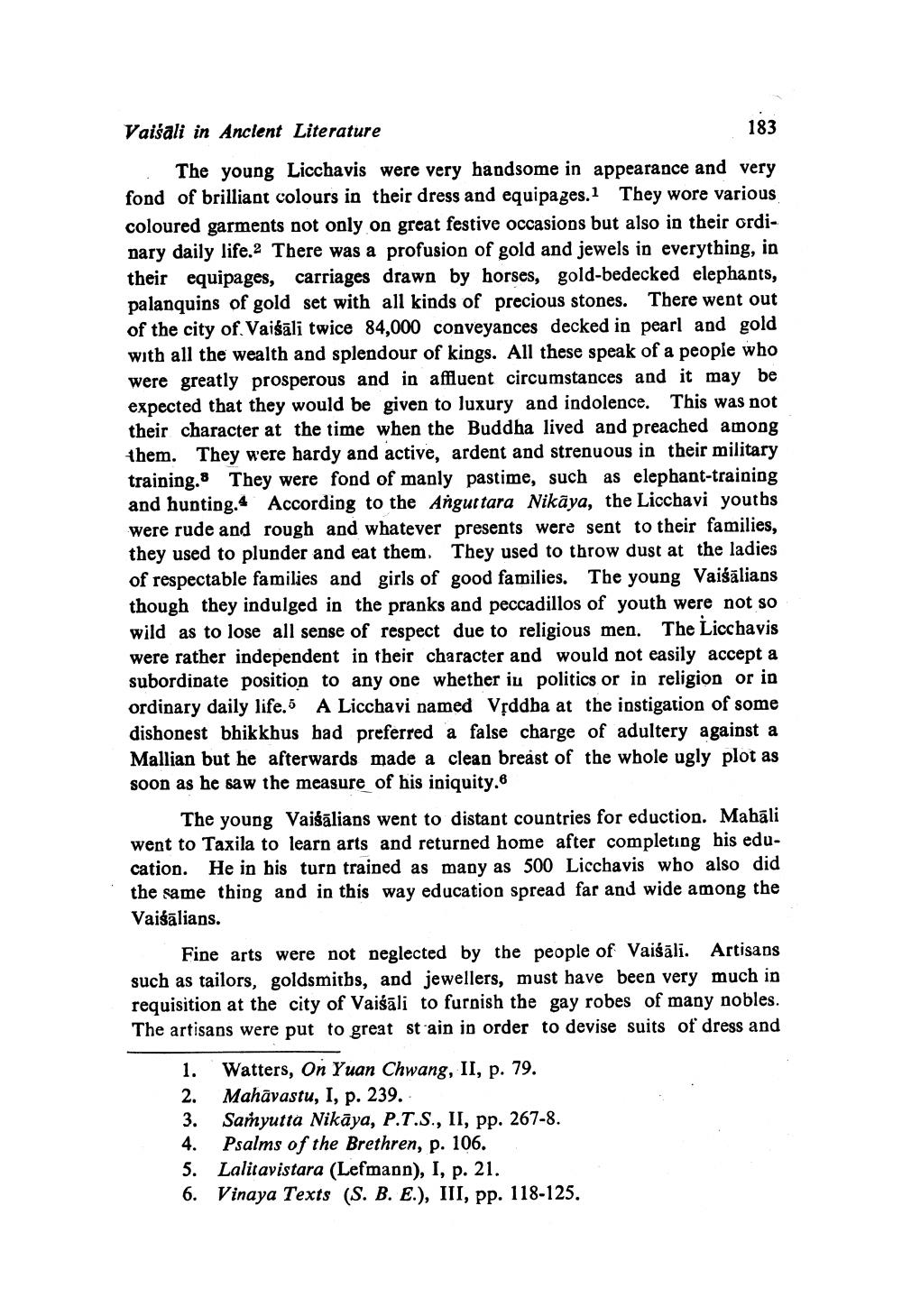________________ Vaisali in Ancient Literature 183 The young Licchavis were very handsome in appearance and very fond of brilliant colours in their dress and equipages. They wore various coloured garments not only on great festive occasions but also in their ordinary daily life.2 There was a profusion of gold and jewels in everything, in their equipages, carriages drawn by horses, gold-bedecked elephants, palanquins of gold set with all kinds of precious stones. There went out of the city of Vaisali twice 84,000 conveyances decked in pearl and gold with all the wealth and splendour of kings. All these speak of a people who were greatly prosperous and in affluent circumstances and it may be expected that they would be given to luxury and indolence. This was not their character at the time when the Buddha lived and preached among them. They were hardy and active, ardent and strenuous in their military training. They were fond of manly pastime, such as elephant-training and hunting. According to the Angut tara Nikaya, the Licchavi youths were rude and rough and whatever presents were sent to their families, they used to plunder and eat them. They used to throw dust at the ladies of respectable families and girls of good families. The young Vaisalians though they indulged in the pranks and peccadillos of youth were not so wild as to lose all sense of respect due to religious men. The Licchavis were rather independent in their character and would not easily accept a subordinate position to any one whether in politics or in religion or in ordinary daily life. A Licchavi named VIddba at the instigation of some dishonest bhikkhus had preferred a false charge of adultery against a Mallian but he afterwards made a clean breast of the whole ugly plot as soon as he saw the measure of his iniquity.8 The young Vaisalians went to distant countries for eduction. Mahali went to Taxila to learn arts and returned home after completing his education. He in his turn trained as many as 500 Licchavis who also did the same thing and in this way education spread far and wide among the Vaisalians. Fine arts were not neglected by the people of Vaisali. Artisans such as tailors, goldsmiths, and jewellers, must have been very much in requisition at the city of Vaisali to furnish the gay robes of many nobles. The artisans were put to great stain in order to devise suits of dress and 1. Watters, On Yuan Chwang, II, p. 79. 2. Mahavastu, I, p. 239. 3. Samyutta Nikaya, P.T.S., II, pp. 267-8. 4. Psalms of the Brethren, p. 106. 5. Lalitavistara (Lefmann), I, p. 21. 6. Vinaya Texts (S. B. E.), III, pp. 118-125.




